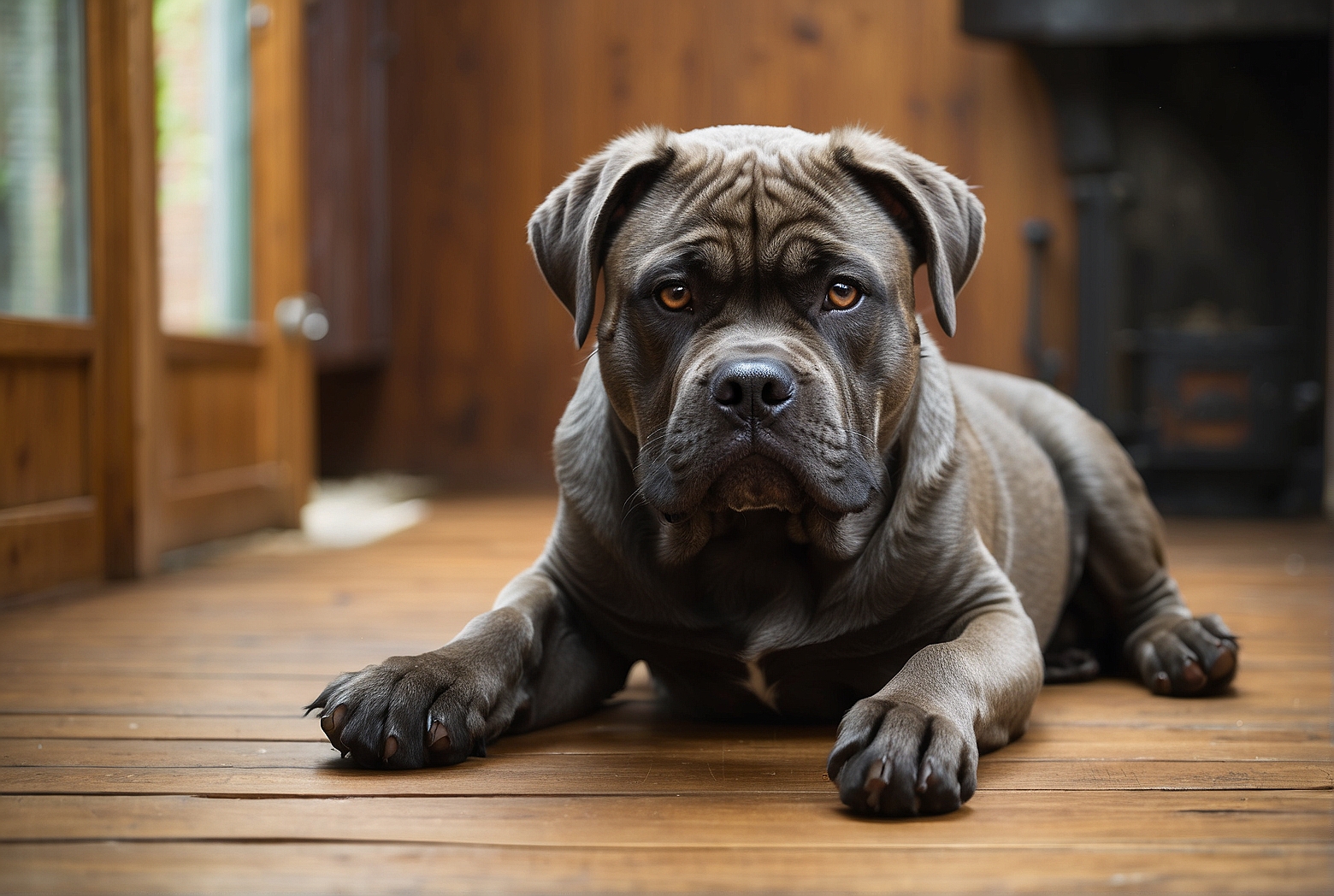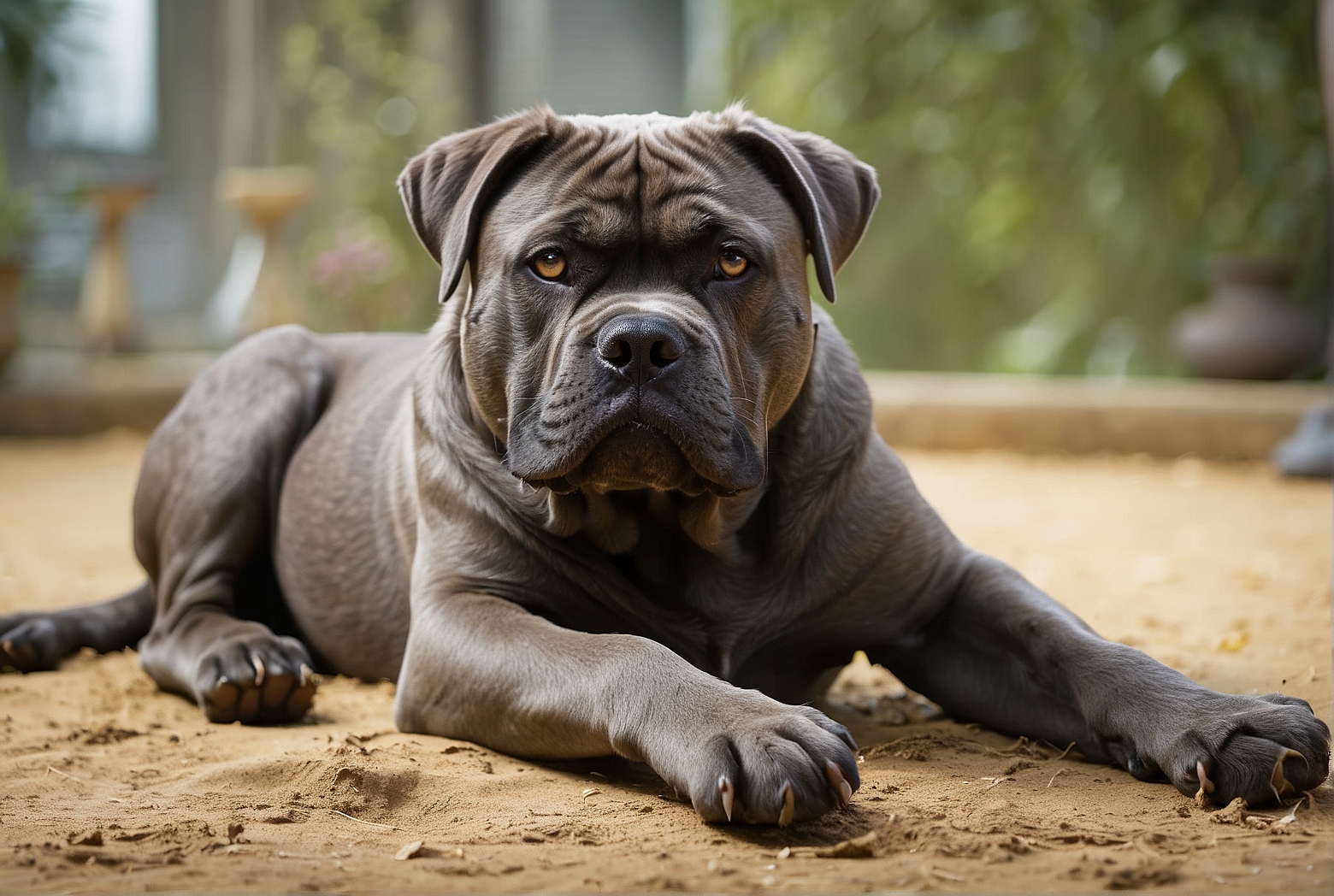Are you a proud owner of a Cane Corso? If so, then you know how important it is to keep your furry friend healthy and happy. In this article, we will share some valuable tips on how to prevent bloat in Cane Corso. From watching their diet to keeping them active, these simple yet effective strategies will help keep your beloved pet safe from this potentially serious condition. So read on to learn more about how you can ensure the well-being of your Cane Corso and enjoy many years of companionship together.
Feeding Tips
Feeding your Cane Corso is an important aspect of their overall health and well-being. To help prevent bloat, it is recommended to feed smaller, more frequent meals throughout the day. This can help reduce the amount of air swallowed while eating and can also prevent the stomach from becoming too full. By dividing their meals into smaller portions, you can ensure that your Cane Corso is getting the nutrients they need without putting unnecessary strain on their digestive system.
Using elevated feeding dishes can also be beneficial in preventing bloat. These dishes can help to promote better posture while eating, reducing the chances of your Cane Corso swallowing excess air. Elevating their bowls to a height that is comfortable for their size can create a more natural and relaxed feeding position.
It is also important to avoid feeding your Cane Corso immediately before or after exercise. This can increase the risk of bloat as the digestive system is already working hard during physical activity. Give your dog some time to rest and relax before and after meals to allow for proper digestion.
Dietary Considerations
Choosing a high-quality, easily digestible diet is essential for preventing bloat in your Cane Corso. Look for dog foods that contain simple and wholesome ingredients, as well as a balanced blend of proteins, carbohydrates, and healthy fats. This can help your dog’s digestive system work efficiently and reduce the chances of stomach upset or bloating.
Avoiding foods that contain gas-inducing ingredients, such as beans, peas, or soy, can also be beneficial. These ingredients can cause excessive gas and discomfort in your Cane Corso. Read the labels carefully before purchasing dog food and opt for options that are free from these potential gas-inducing ingredients.

Consider using a slow-feed bowl or puzzle feeder for your Cane Corso. These special feeding tools are designed to slow down your dog’s eating pace, preventing them from consuming their food too quickly. Eating too fast can increase the chances of bloat, so using these slow-feeding techniques can be helpful in preventing this condition.
Exercise and Activity
While exercise is important for your Cane Corso’s physical and mental well-being, it’s important to be mindful about the timing and intensity of their exercise routine to prevent bloat. Vigorous exercise immediately before or after meals can increase the risk of bloating. Therefore, it is recommended to avoid strenuous activities during these times.
Implementing regular, moderate exercise sessions can help keep your Cane Corso healthy and fit. This can include activities such as brisk walks, light jogging, or playing in a secure and safe environment. Regular exercise not only helps with digestion but also promotes a healthy weight, which can reduce the risk of bloat in your Cane Corso.
In addition to physical exercise, providing mental stimulation and enrichment activities is also important. Mental stimulation can help keep your Cane Corso engaged and occupied, reducing their chances of becoming anxious or stressed. Activities such as puzzle toys, obedience training, or even interactive playtime can provide the mental enrichment they need.
Slow Eating Techniques
Using slow feeder bowls or interactive toys can be effective in preventing bloat in Cane Corso dogs. These specialized bowls and toys are designed to make it challenging for your dog to access their food quickly. By slowing down their eating pace, you can reduce the chances of excessive air intake and bloating.
Another technique is to divide your dog’s meals into smaller portions and spread them out throughout the day. This not only promotes slower eating but also keeps your dog’s stomach from becoming too full at once. By spreading out their meals, you can ensure their food is properly digested and reduce the risk of bloat.

Food puzzle toys or treat-dispensing toys can also help slow down your Cane Corso’s eating pace. These toys require your dog to work for their food, providing mental stimulation while reducing the likelihood of gobbling up their meal. Consider incorporating these toys into your dog’s mealtime routine to promote slower, healthier eating habits.
Monitoring and Observation
Being observant of your Cane Corso’s eating habits and behavior is crucial in preventing bloat. Take note of how quickly they eat, if they seem to be swallowing air, or if they display any signs of discomfort during or after meals. Any changes in their eating patterns or behavior should be monitored closely.
Watch for signs of discomfort or distress, such as restlessness, pacing, drooling, or attempting to vomit. These can be early signs of bloat and should not be ignored. If you notice any of these symptoms, it’s important to contact your veterinarian immediately.
Regularly checking for signs of bloating or abnormal abdominal expansion is essential in preventing bloat. Gently feel your Cane Corso’s abdomen for any swelling, firmness, or discomfort. If you notice any abnormalities, seek veterinary assistance promptly as this can be a sign of a serious condition.
Mealtime Environment
Creating a calm and stress-free feeding environment can greatly benefit your Cane Corso and help prevent bloat. Minimize distractions during mealtime by feeding your dog in a quiet and secluded area of your home. This can help your dog focus on their meal and reduce the chances of them eating too quickly.
If you have multiple dogs, consider separating them during feeding time to avoid rapid eating or any potential food aggression. Each dog should have their own designated space during meals to ensure they can eat at their own pace without any unnecessary stress.
Hydration
Ensuring your Cane Corso has access to clean and fresh water at all times is crucial for their overall health and well-being. Proper hydration can help with digestion and prevent dehydration, which can contribute to the risk of bloat.
Avoiding excessive water consumption immediately before and after meals is recommended. This can help prevent the stomach from becoming overly dilated, reducing the chances of bloat. Instead, encourage regular but moderate water intake throughout the day to keep your Cane Corso hydrated without putting undue stress on their digestive system.
Routine Veterinary Care
Routine veterinary care is essential in preventing and managing bloat in Cane Corsos. Schedule regular check-ups and examinations with your veterinarian to ensure your dog’s overall health is monitored. During these visits, discuss bloat prevention strategies with your veterinarian to ensure you are taking the necessary precautions.
Consider discussing prophylactic gastropexy surgery with your veterinarian, especially if your Cane Corso is considered high-risk for developing bloat. This surgical procedure involves attaching the stomach to the abdominal wall, which can help prevent stomach torsion. Your veterinarian can provide guidance on whether this surgery is appropriate for your dog.
First Aid Knowledge
Being prepared for emergencies is crucial when it comes to bloat. Learn basic first aid for bloat emergencies, including how to recognize the signs and what immediate actions to take. Keep emergency contact numbers and a pet first aid kit readily available so that you can act quickly in case of an emergency.
Familiarize yourself with the signs of bloat, such as restlessness, pacing, abdominal distention, and unproductive attempts to vomit. If you suspect that your Cane Corso is experiencing bloat, do not hesitate to seek veterinary assistance. Time is of the essence when it comes to bloat, and early intervention can significantly improve the chances of a positive outcome.
Breeding Considerations
If you are considering adding a Cane Corso to your family, it is important to work with responsible breeders who prioritize bloat prevention. Inquire about the health history of the Cane Corso’s lineage, including whether any previous dogs from the bloodline have experienced bloat.
Discuss bloat prevention plans with the breeder before purchasing a puppy. Responsible breeders should be knowledgeable about the risks of bloat and should be able to provide you with information on how they prevent and minimize the occurrence of bloat in their breeding program.
In conclusion, preventing bloat in Cane Corsos requires a combination of mindful feeding practices, exercise management, regular monitoring, and veterinary care. By implementing these preventive measures, you can greatly reduce the risk of bloat in your beloved Cane Corso and ensure their long-term health and well-being.
